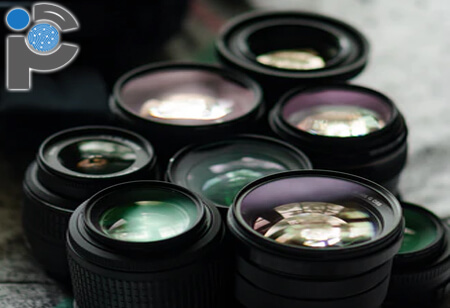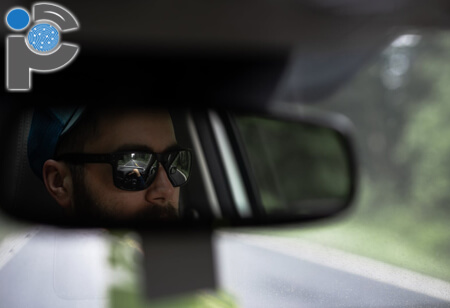Can Photographers Work As Private Investigators?
July 6, 2021 - Reading time: 6 minutes
Updated on: August 7, 2025
Whichever way that you look at it, the photography market is saturated with thousands and thousands of skilled photographers working across the UK. Many photographers seek to venture out into as many forms of work as possible, and private investigation is a potential market which some photographers will consider venturing into. So, can photographers venture into the detective industry?
Yes, photographers can work as private investigators and are often able to gather high quality images during surveillance assignments. However, just because you know how to take photographs, doesn’t mean that you should be working as a private investigator. All agents should be equipped with the relevant training before working on surveillance cases.
Why photographers can make great private investigators
When it comes to working as a private investigator, photography and videography plays a huge role. Often is the case that an investigator will sit in wait for hours on end, waiting for the right moment to take that one desired photo of the subject in a compromising position.
As any photographer will tell you, point and shoot cameras have their limitations, especially for long distance photography or in low light. Taking a good shot in many conditions will require a DSLR camera with a suitable lens.
Most point and shoot cameras will provide optical zoom before switching to digital zoom; when the camera reaches its limit for optical zoom it will simply enhance the image that it has captured by zooming in on it digitally. In order to take things a step further, a DSLR camera with a suitable lens will be required.
Most photographers will have at least 3-5 lenses for their cameras, and will choose the most appropriate lens for each use case.

For example, a photographer might keep a 14mm wide angle lens which can be used to capture large areas in one photo, a 50 mm lens which is more suited to close range photography, a 18-140mm which is a close to medium range lens, and critically a lens which is suited to long range photography.
For long range photography, we would typically use a lens which has a focal length of at least 300-400mm or longer.
In many cases during surveillance or undercover assignments we also use pin hole cameras which can be hidden in common objects and used to photograph a subject without their knowledge.
For skilled photographers with the right equipment and knowhow, working for a detective agency can make a lot of sense.
Getting the right training
Being a great photographer won’t necessarily make you a great private investigator; and any agent that is tasked on working a surveillance case should have already received formal training on the best practices to avoid being caught by the subject and to ensure that the best possible evidence is captured in each case.
While there are hundreds or even thousands of different “private investigation courses” to be found on the internet, we would suggest doing your research and making sure that you choose a reputable course which is known and respected by detective agencies.
Generally, courses which are based solely on the internet will not provide adequate training and are not held in high esteem by detective agencies. It’s worth going the extra mile and receiving hands on, “in person” training, if you are serious about pursuing a career in the detective industry. Such training is offered by various providers across the UK.
For the most up-to-date information on training courses and qualifications recommended by us, please read our “How to become a private investigator” article.
Choosing a suitable vehicle for surveillance
If you decide to work on surveillance cases using your own vehicle, then you should consider the type of car you have and how it might be used. Surveillance assignments can span over several hours in some cases, and you should be able to remain in your vehicle comfortably for long periods, with enough space for your camera/tripod setup.
Remaining hidden inside your vehicle during static surveillance is another point to consider… Most surveillance agents will tint their vehicle’s windows so that they are able to take photographs discreetly and without being noticed by the subject or anyone else.
Some investigators will even purchase a second vehicle for use during surveillance assignments, such as an inexpensive van or minivan which can be kitted out with photography equipment.
For more information on surveillance vehicles, check out our articles “Window tint for private investigators” and “What type of cars do private investigators drive?”.
Working as a private investigator is not for everyone
Lying in wait for hours at a time in order to photograph a person as part of an accident injury claim investigation, or perhaps a subject suspected of infidelity, is worlds away from the typical duties of a photographer; and working as a private investigator is not for everyone.

Working as a private investigator can involve long, unsociable hours, it can be boring at times and unnerving at other times.
Aside from the boredom, some people are simply not capable of working within the detective industry; they feel nervous or as though they are doing something wrong. A good investigator will need to put their own feelings aside, they will need to act with confidence and for the best possible results.
Before pursuing a career within our industry, you would be wise to seriously consider whether it is a profession that you are capable of and whether you would feel comfortable in fulfilling the role of a private investigator.
You are reading the PrivateInvestigators-UK blog — home to the UK's leading detective agency. Learn more about us by visiting our homepage PrivateInvestigators-UK.com.